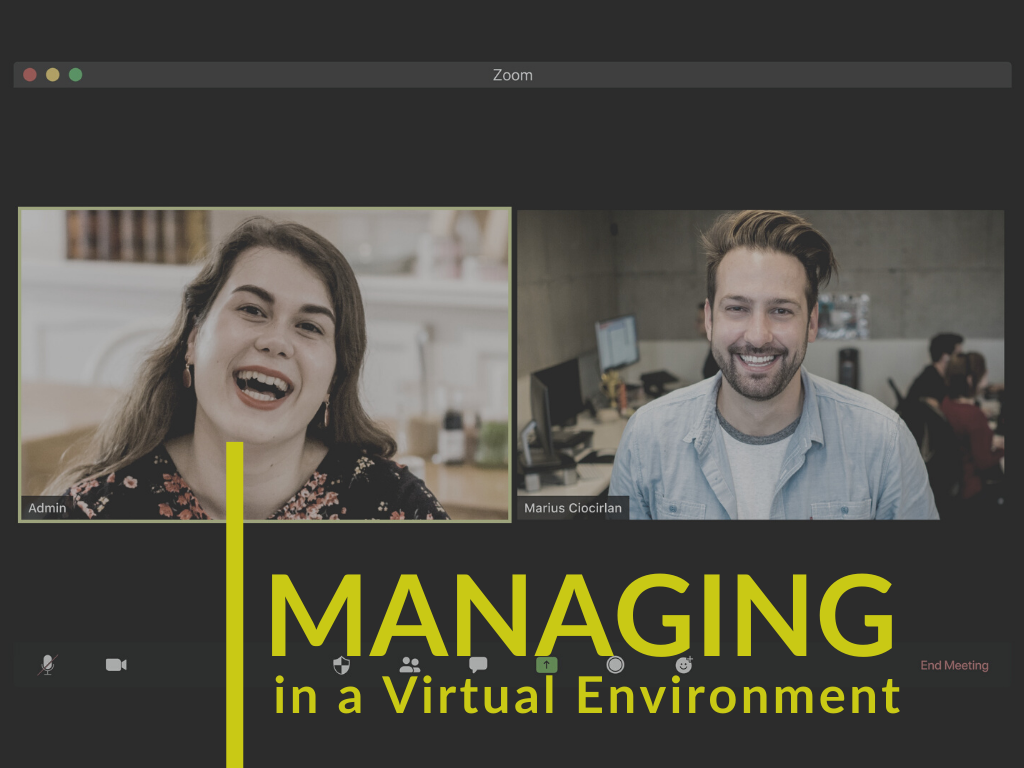Managing in a Virtual Environment
Managing people is hard. Full Stop. But managing people you don’t have physical contact with is even harder. But there is certainly some good news: if we can learn to manage people remotely, then we can also learn to create staff and teams that are self-managing and self-motivated.
Sometimes when we manage people in the office environment, we run the risk of becoming lazy. Our interactions can become transactional and, because we are always there to check up on people’s work, we probably micro manage more than we should, and our staff might even rely on us to do it (whether they amit it or not). So, in a remote environment, what are the absolute key things we can do to keep people performing at their best, keep them mentally and socially stimulated, and help them achieve their best work?
Here are some ideas:
Manage Outcomes, Not Inputs
At the start of the week, ask each of your team members what they think they can get accomplished during the week. They might have BAU things that need to happen – which are a given – but they might also be able to advance a project they’re working on as well. Come to an agreement on work completion for the week and let them know you are there to support whenever they need it.
Then, it shouldn’t matter whether they do this in 30 hours or 50 hours, or whether they do it around the pool patting their dog, or at a dedicated workstation. The outcome is all that matters.
Keep Team Meetings Alive
This depends on your technology availability, obviously, but make sure you keep team meetings happening at the same time as they were originally scheduled and do these by video whenever possible. This is a great way to connect and still feel part of the whole. You might also want to revamp your meeting agenda. If your meetings are a little boring in person, then people will really struggle to pay attention in a virtual environment. Get rid of the “what have you got happening” round table that people do too often and, instead, look for topics that everyone really needs to engage in.
Stay Interested in People
When most of our interactions become digital – mostly via email and phone calls – we can tend to become transactional. We just get the person on the phone and use as little time as possible to get what we need and get on with work. Make time to talk about small things – what’s just happened in the office/household, funny stories and general banter. It will happen more readily over video conference, but try to keep it alive during phone calls as well. This keeps us socially connected.
Rules for Replies
Finally, be clear about communication expectations as a team. Particularly expectations about turn-around times. When we don’t see each other as much, we start to use email as our primary form of communication. I think everyone has been in a situation where they have gotten an email and then a phone call five minutes later asking why you haven’t replied. What’s the timeframe on email replies? What about instant messaging? Returning phone calls? Be clear about which communication channels are regarded as urgent and which are more for information and consideration.
If you can do these things well, you will not only be able to manage your team really effectively during this turbulent period in our working lives, but you’ll also build some really valuable team-management and self-management skills that will translate to more effective teams once we get back to normal.
** Tony Wilson is a Workplace Performance Expert focussed on helping leaders build the environment for high performance. His insights into performance science and it's application in the workplace will make you re-think the way that you approach leadership, culture change, high performance and productivity. Tony has an MBA and a BSc majoring in physiology and combines the two for a different perspective. He is also the author of Jack and the Team that Couldn't See and delivers workshops and keynote presentations around the globe.
